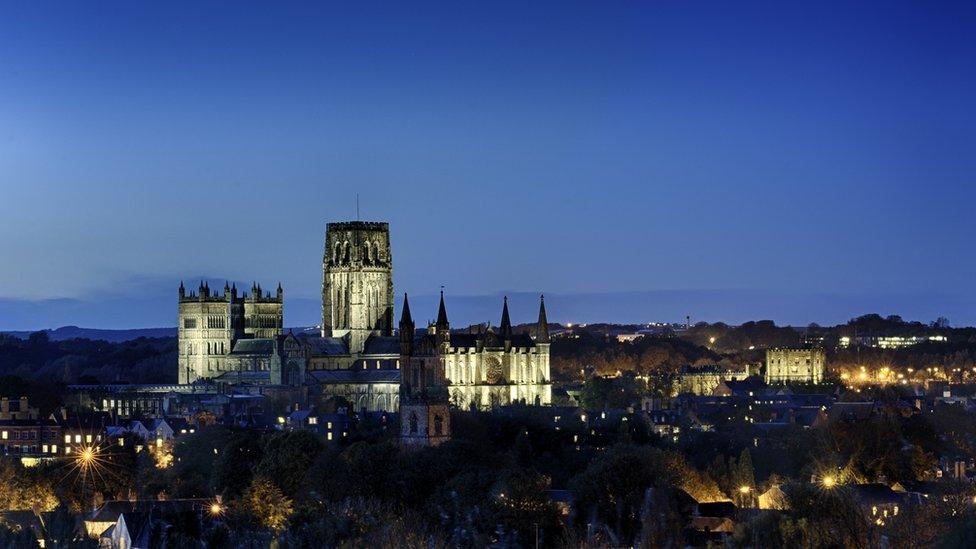Coronavirus: Westminster Abbey 'dealt shattering blow'
- Published
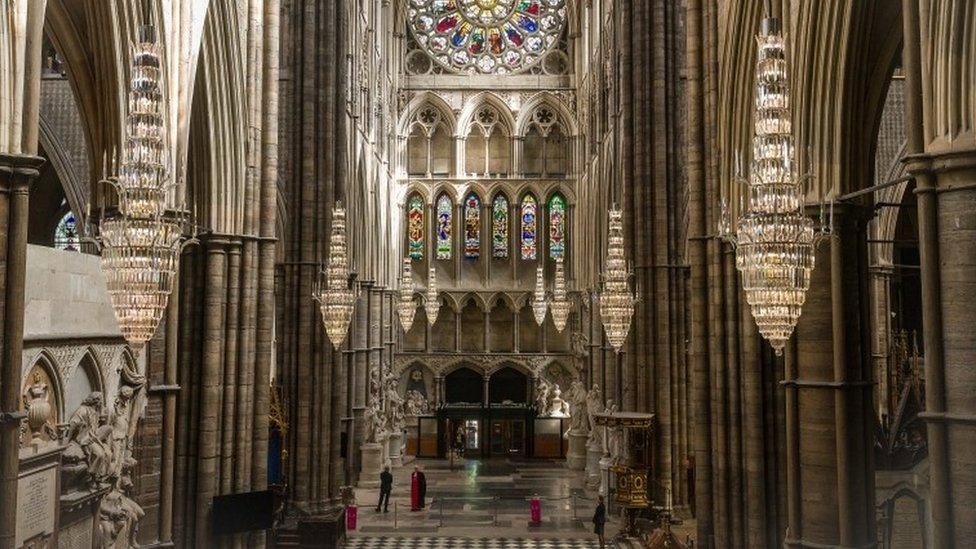
The dean of Westminster Abbey, the Very Rev Dr David Hoyle, told the BBC: "We are vulnerable and we are getting more vulnerable"
Westminster Abbey is down more than £12m in revenue this year and is set to make about 20% of its staff redundant as a result of the lockdown.
More than 90% of its income comes from visitors paying an entrance fee.
It closed its doors on 20 March and only began to reopen for limited tourist visits on 11 July.
The dean of Westminster Abbey, the Very Rev Dr David Hoyle, told the BBC the coronavirus had dealt a "shattering blow" to the Abbey's finances.
Separately, the Church of England's 42 cathedrals are projected to be down more than £28.4m on what they thought their budgets would be this year.
They are projected to lose another £15.5m next year.
'Breathtaking' loss
The Association of English Cathedrals, which represents Westminster Abbey and the Church of England's 42 cathedrals, warned job cuts would hit churches around the country when the government's job retention scheme ended in October.
The Abbey's financial reserves would be depleted by a third from September, Dr Hoyle said, and would continue to fall as visitor numbers were not expected to return to pre-pandemic levels for up to five years.
"There is a real need here," he said, warning Westminster Abbey expected a similar "breathtaking" loss of between £9m and £12m next year as well.
The Abbey is open for services and visits, but numbers are limited as social distancing is enforced.
Dr Hoyle said it was "inconceivable" that the Abbey would be so quiet, as in a "normal" month of July, it would be admitting 1,000 people an hour.
"We are vulnerable and we are getting more vulnerable," he said.
"We're negotiating one of the greatest challenges to hit the Abbey in recent times."
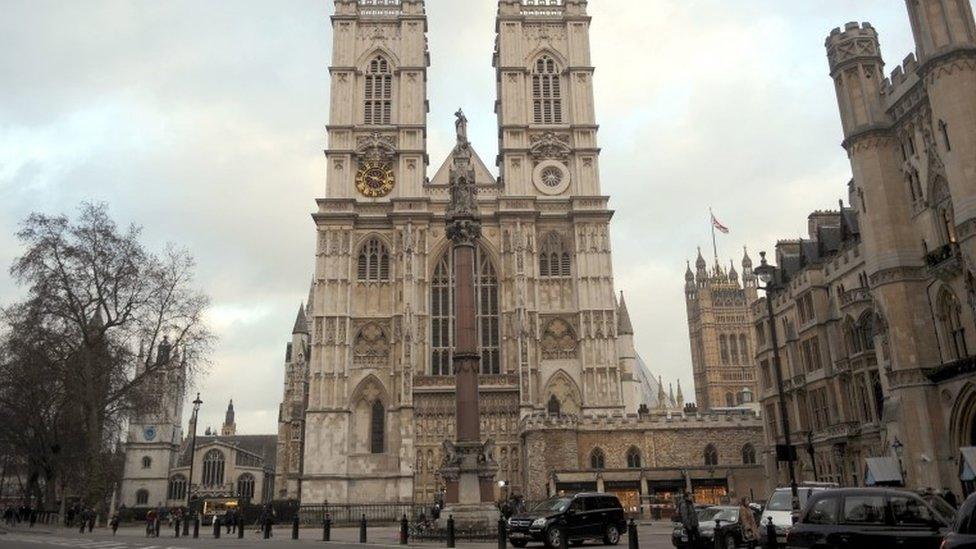
Coronavirus saw the Abbey closed for the longest time since the Queen's coronation
The Abbey has already announced plans to scrap regular Sunday services at St Margaret's, a medieval church in Parliament Square. The professional choir at St Margaret's will be disbanded and worshippers will be told to merge with the congregation in the Abbey.
Due to its status as a Royal Peculiar, Westminster Abbey does not count as one of the Church of England's 42 cathedrals. Instead it is owned directly by the monarch, meaning it is not eligible for funding by the Church Commissioners.
'Nearly zero'
While the Abbey makes most of its income from tourism, many places of worship across the UK rely on cash donations from congregations to survive. Having been forced to close their doors due to the lockdown, many are struggling financially.
One Sikh temple, Singh Sabha London East, typically received about £80,000 a month in donations from attendees. During lockdown, despite losing 90% of its monthly income, the gurdwara provided more than 4,000 meals to NHS staff and other key workers.
But Sukhbir Bassi, one of the senior figures at the gurdwara, said that could not continue without government support.
"We are having serious, serious problems," he said.
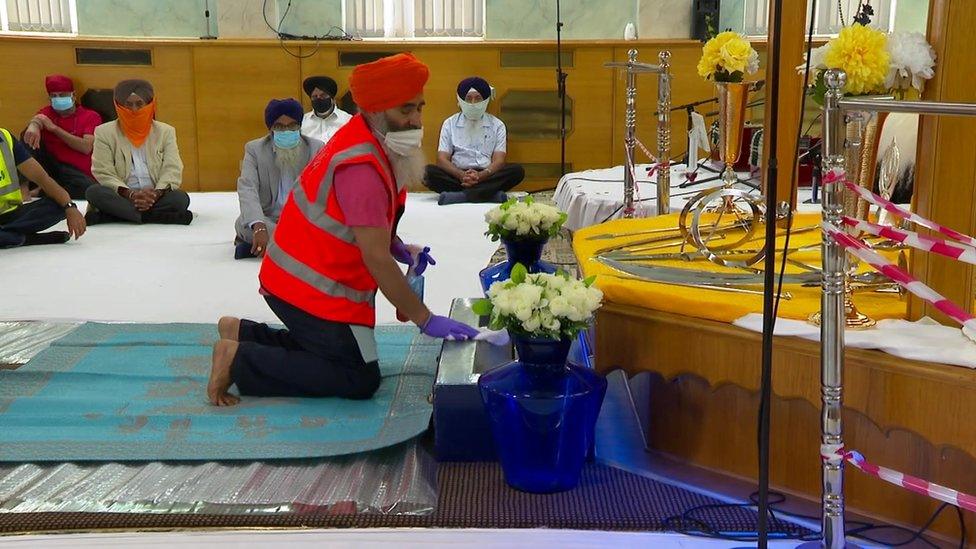
Singh Sabha London East received £80,000 a month in donations before lockdown
The government has pledged £750m in support for voluntary, community and social enterprise organisations.
A spokesperson from the Ministry of Housing, Communities and Local Government said: "We understand the difficulty lockdown has caused people of faith, which is why we have worked in partnership with faith leaders to enable a phased and safe reopening of places of worship."
It said faith organisations had access to government support including the Coronavirus Community Support Fund.
- Published12 July 2020
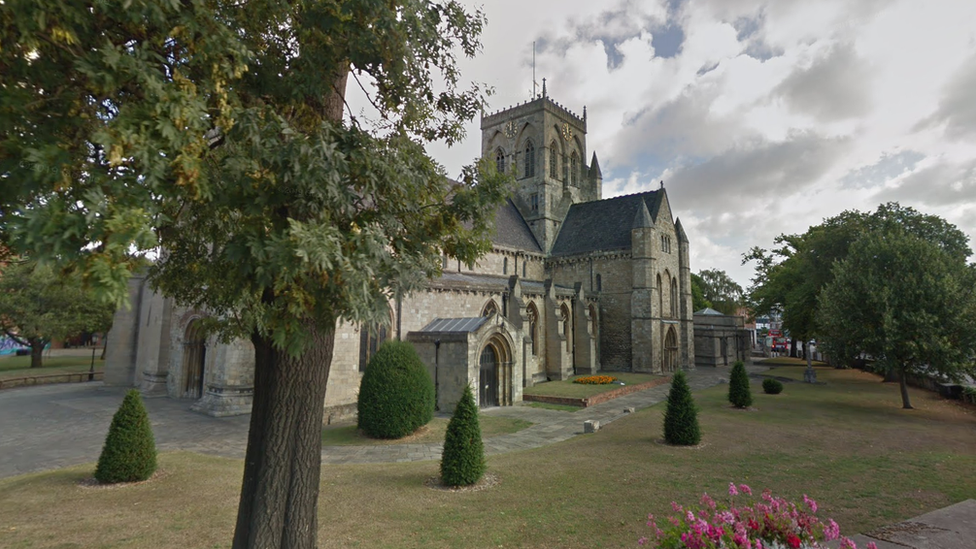
- Published12 April 2021
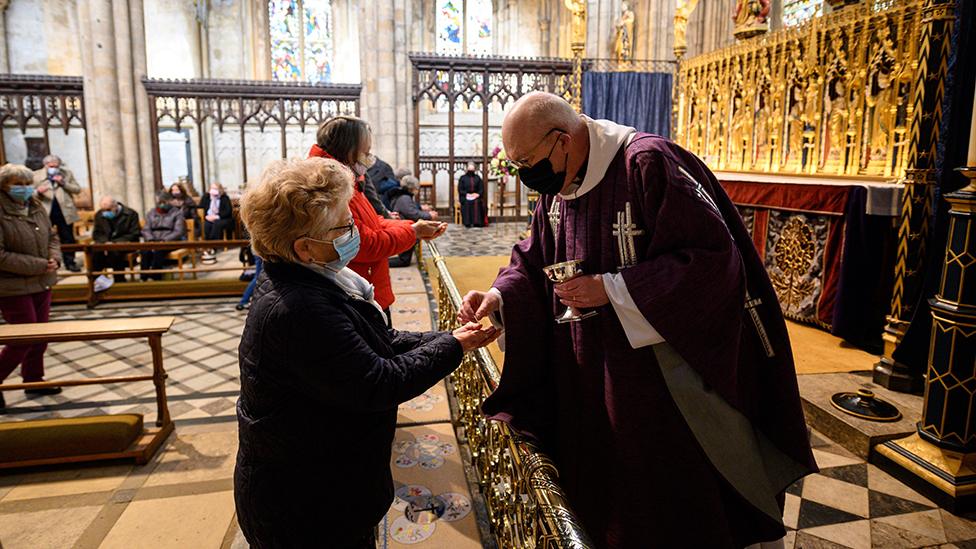
- Published24 June 2020

- Published20 March 2020
